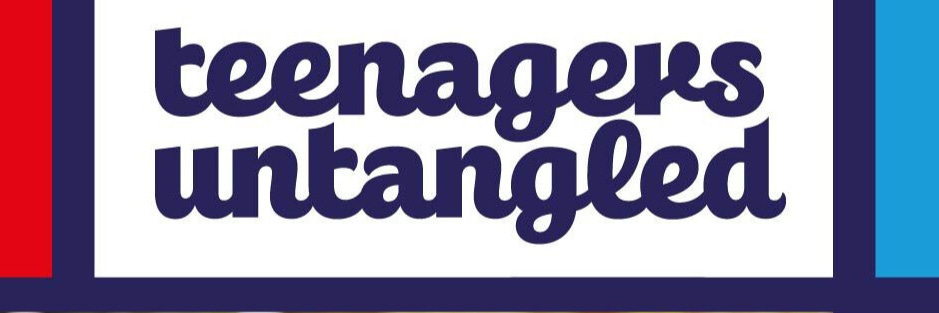Point to your child’s North star until they can see it for themself.

How Your Mindset Can Unlock Your Teen's Motivation
It's easy for us parents to fall into the trap of believing that teenagers are inherently short-sighted, illogical, and incapable of making wise decisions.
So many of things they do seem to back up our belief; they don't do their homework, but waste valuable time on social media instead. They aren't interested in helping around the house but will waste hours making sure their outfit is 'just right'. The "incompetence model" is a common belief, rooted in ancient Greek philosophy and modern neuroscience. The idea is that the onset of puberty and the emotional changes it brings "hijack" the logical reasoning of the teenage brain. However, developmental psychologist David Yeager argues that this model is fundamentally flawed.
Teenagers are not doomed to be incompetent - they are highly motivated by the need for status and respect within their social groups. They may not appear capable of keeping their room tidy but ask them to plan a night out with their mates and they’re suddenly hyper-focused on figuring out logistics. They can’t remember the boring facts from a recent lesson but they can remember every single lyric from a rap song their group loves.
Their brains are not malfunctioning, but rather working hard to figure out how to become a valued member of their community.
The Power of Your Mindset
The way we, as parents, view our child's abilities can have a massive impact on their motivation and success. If we subscribe to the incompetence model, we're likely to adopt an "Enforcer" or "Protector" mindset when it comes to parenting. The Enforcer mindset sets high standards; you must do your homework on time and always get A stars, but provides little support, leaving our children feeling inadequate and ashamed when they inevitably struggle. The Protector mindset, on the other hand, lowers expectations to avoid disappointment; you have a learning disability so I'm not going to ask anything of you because the pressure is unfair. But this can lead to dependency and a lack of confidence.
Instead, Yeager recommends the "Mentor Mindset" - setting high standards while also providing high levels of support. This "inclusive excellence" approach helps our children meet challenging goals, building their competence and self-esteem in the process.
Reframing Stress as Enhancing
Another common misconception is that stress is always a bad thing. Many parents try to shield their children from any form of stress or upset, believing it will hinder their performance. However, research shows that our interpretation of stress is what makes a significant difference.
I found Yeager's chapter on stress to be incredibly enlightening. I had no idea that our attitude to our stress can directly impact our physiology. When we view stress as a debilitating force, our bodies respond accordingly, with increased anxiety and decreased cognitive function. But Yeager explains that when we reframe stress as a resource - a natural physiological response to help us perform better - something remarkable happens. Our body physically responds in a positive way to enable us to perform better.
In his book he says we need a ‘synergistic’ approach. What he means is that we need to pair a stress-enhancing message with a growth mindset (the belief that abilities can be developed), coupled with goals that centre the need to impress their friends. When we can do this we hit the sweet spot of motivation.
Fostering Natural Competence
At the heart of Yeager's approach is the belief that teenagers are not inherently incompetent, but rather highly motivated to find their place in the social hierarchy. By understanding and respecting this fundamental drive, we can create an environment that nurtures their natural competence. Instead of nagging, yelling, blaming or shaming our children, we should try a collaborative troubleshooting approach.
Ask questions to understand their perspective, and work together to find solutions. This not only builds their problem-solving skills but also demonstrates your respect for their autonomy and decision-making abilities.
Remember, our words and actions have a profound impact on our child's self-perception. By adopting a Mentor Mindset, reframing stress, and fostering their natural competence, you can unlock your teenager's motivation and help them thrive.
Putting it into Practice
Implementing these strategies may not be easy, especially in the heat of the moment. But with practice and patience, we can transform our relationship with our child and help them develop the skills and confidence they need to navigate the teenage years and beyond.
I think the best place to start is by reflecting on our own mindset - are you an Enforcer, a Protector, or a Mentor?
Next, look for opportunities to reframe stress and have collaborative conversations.
Over time, you'll see the positive impact of this approach on your child's motivation and well-being. I definitely had a protective mindset with one of my daughters who is dyslexic. I first woke up to this when my friend used the term, ‘learned dependence.’ At that point I knew I had to change my approach.
It’s a been a long road, but I can safely say that this mentor midset has had a profound affect on her and our relationship. The final gap was filled when Yeager's book helped me fully understand my daughter's seeming rebellious behaviour was driven by her desire for respect and approval. In my generation we were always told that respect is earned, but waiting for our kids to earn it can take us down completely the wrong path. I’ve realised that by starting with respect and pointing to her North star until she can see it for herself, I have helped her believe in her own abilities and to brave enough to follow a path that's right for her.




